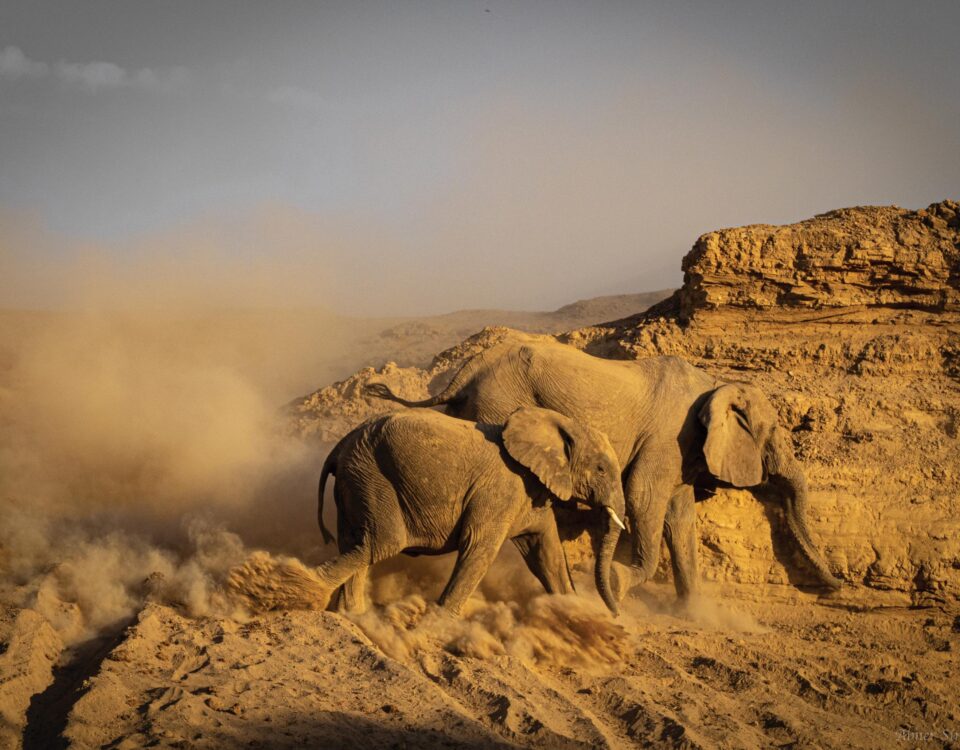Transformation of the METs Human & Financial capital
May 7, 2013Protected areas and mining in Namibia
May 7, 2013Text Samson Mulonga
Hardworking, persevering, reliable, always on time. These are the words SPAN Project staff and MET colleagues associate with the youngest member of the SPAN Project team, Rosalia Iileka.
Rosalia comes from a generation of Namibians known as the born frees (born after Namibia’s independence), yet this young woman handles her work with a distinct touch of professionalism. Since joining the SPAN Project in August 2011, Rosalia has been at the centre of almost every SPAN project activity. Never one to shy away from responsibility, and ever willing to sacrifice her time beyond working hours, she has coordinated major activities with limited supervision, working with local and international consultants and ensuring delivery of quality outputs.
When the author of this article drove to Hosea Kutako International Airport to meet Oliver Chapeyama, the SPAN Project terminal evaluation consultant, Oliver’s first question was, “Who is Rosalia Iileka?” – thereby acknowledging the key role Rosalia had played in coordinating preparations for the evaluation.
From her humble beginnings at Iino in the Omusati Region in northern Namibia, Rosalia showed the makings of a future leader. Instead of playing with dolls like most young girls of her age, she preferred to herd cattle and goats with her brother out on the open plains. To her this was infinitely more fun and exciting. In addition to spending time out in the veld tending livestock, she also spent time with her grandmother every day to practise reading and writing, and was thus well prepared when she enrolled at the Naango Primary School in 1996.
Throughout her school life Rosalia was always fascinated by nature. Noticing this, her big sister encouraged her to study Nature Conservation at the Polytechnic of Namibia. The course proved to be exciting and helped answer some of questions that had been on her mind since her early days in the veld, such as: Why are there different ecosystems in Namibia? Why is the south so dry and the Kavango and Caprivi regions so wet?
Rosalia joined the SPAN Project in August 2011 after completing her internship at the Gobabeb Training and Research Centre. She describes her work at SPAN as initially highly challenging, but assisted by her colleagues, she learnt the importance of ensuring that work was done effectively and efficiently for positive outcomes.
“It has been very rewarding working with a dedicated team. Things went really smoothly for me. I had the privilege of visiting different parts of Namibia. To me Caprivi was the most wonderful and interesting region. I was also given the opportunity to attend a SKEP partner’s conference in South Africa,” she says
Rosalia emphasises that most of the SPAN Project goals have been achieved. Her highlights include staff training, information sharing through park talks and Sandpaper magazines, development of training manuals designed to ensure skilled, motivated and effective staff, the development of Park Management plans, and the expansion and strengthening of protected areas.
As demonstrated in the year she worked for SPAN, this young lady unquestionably holds great potential. During 2013 she will be furthering her studies in South Africa, after which she plans to return to Namibia to continue on her chosen and much-loved career path.
Her wish list includes:
- The MET should continue with all SPAN activities, especially park talks and the production of Sandpaper magazines
- More women should be employed in protected areas, and
- More awareness on climate change issues should be propagated, especially at local level.
This article was originally published in the 2013 Conservation and the Environment in Namibia.

